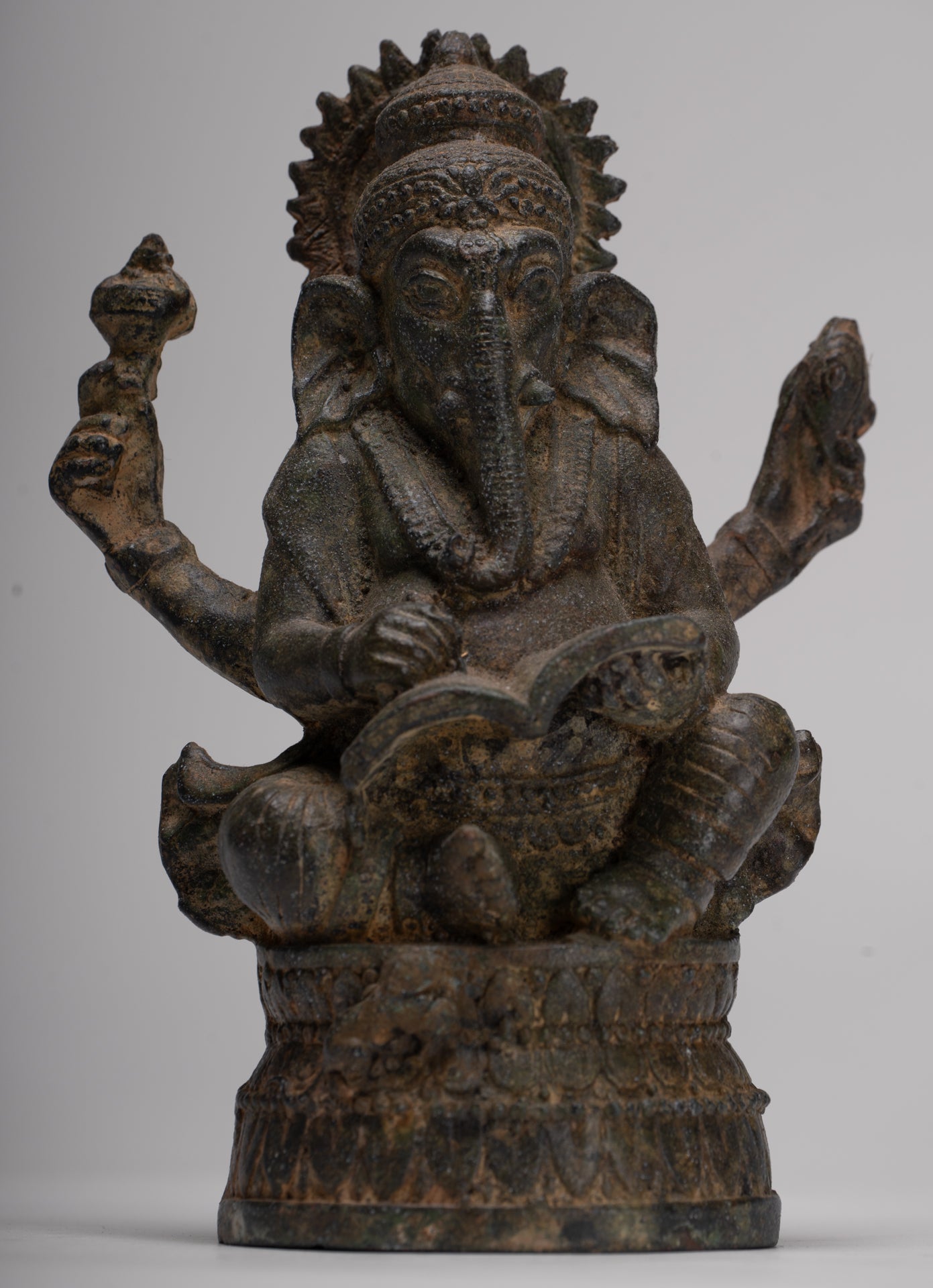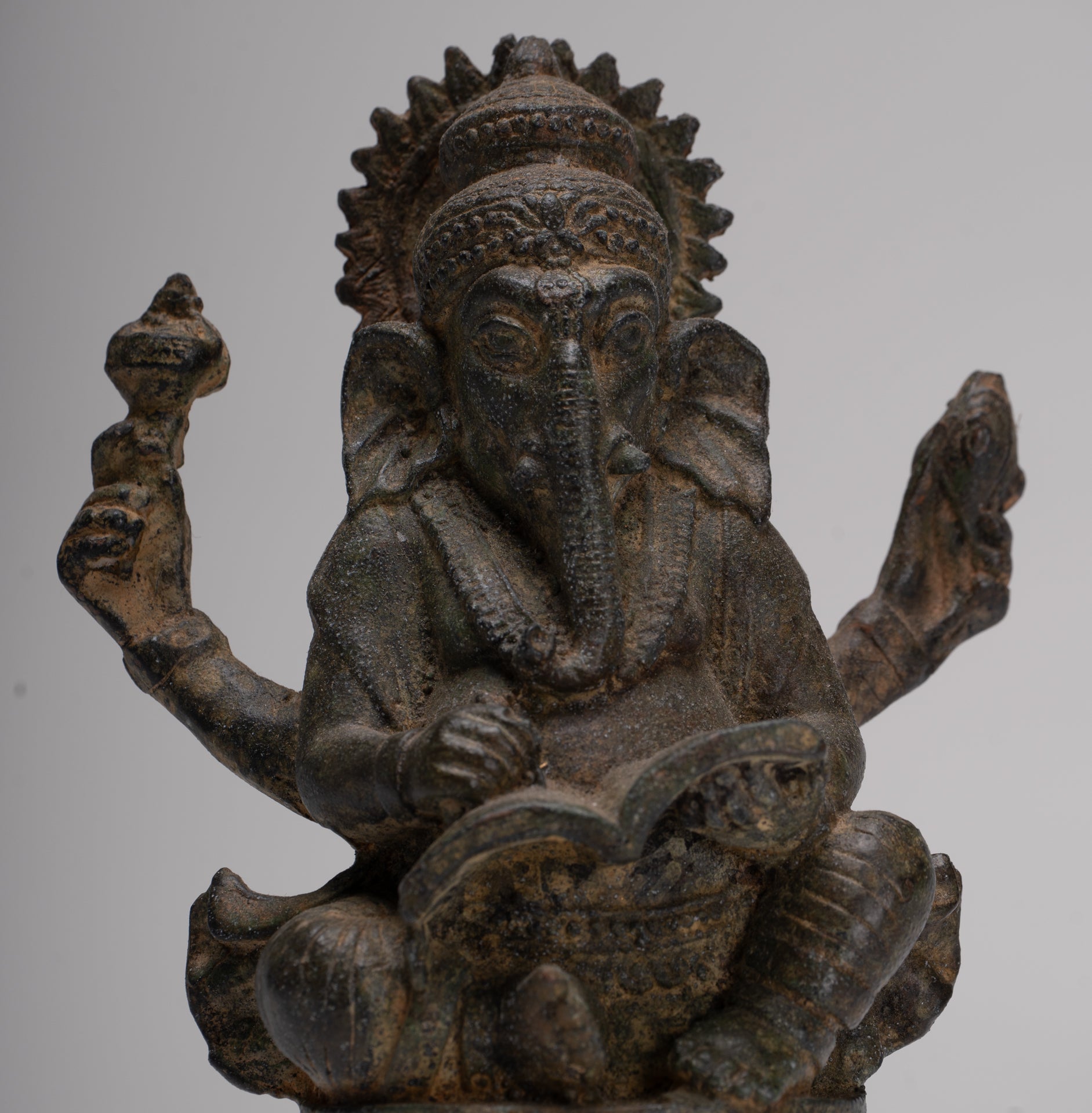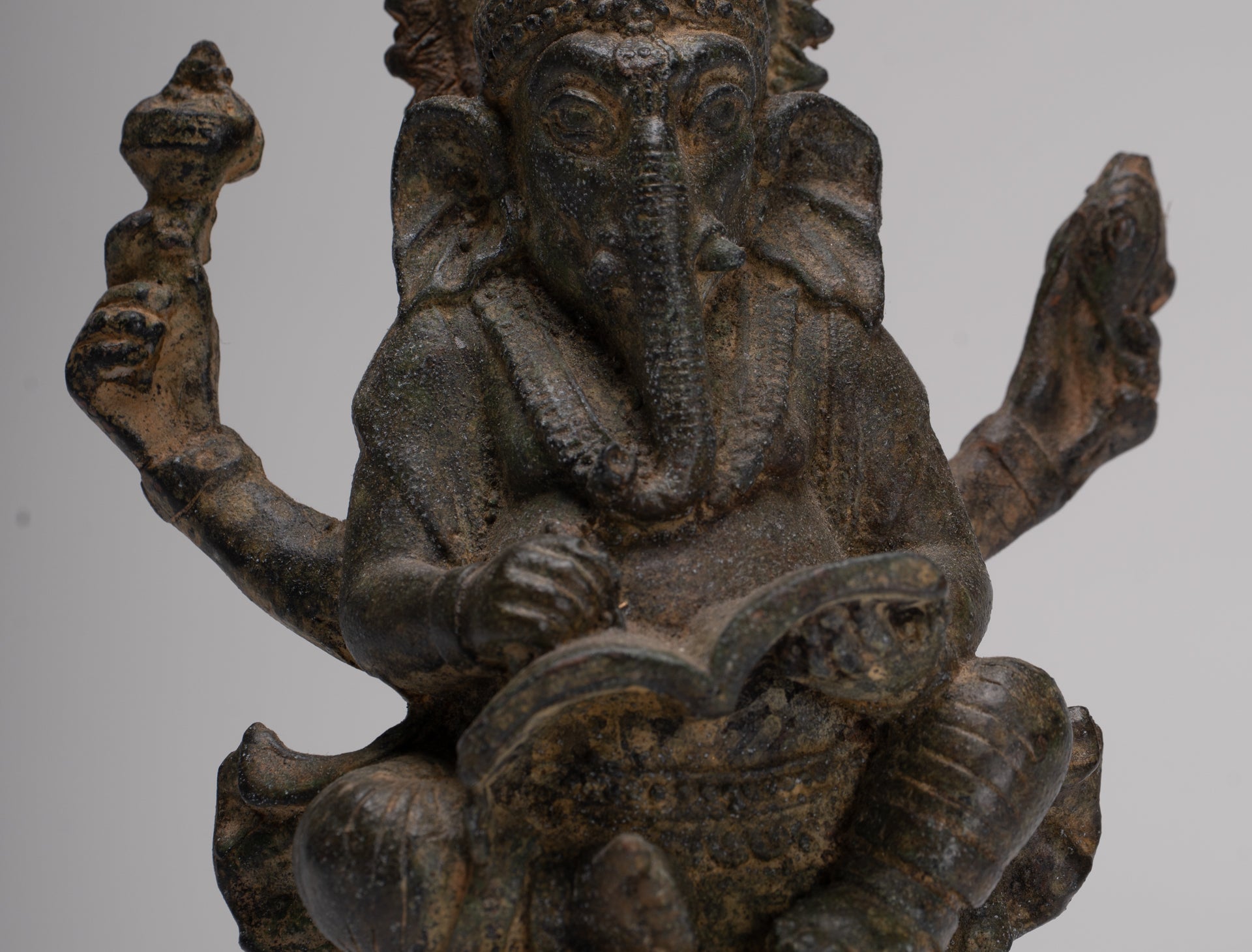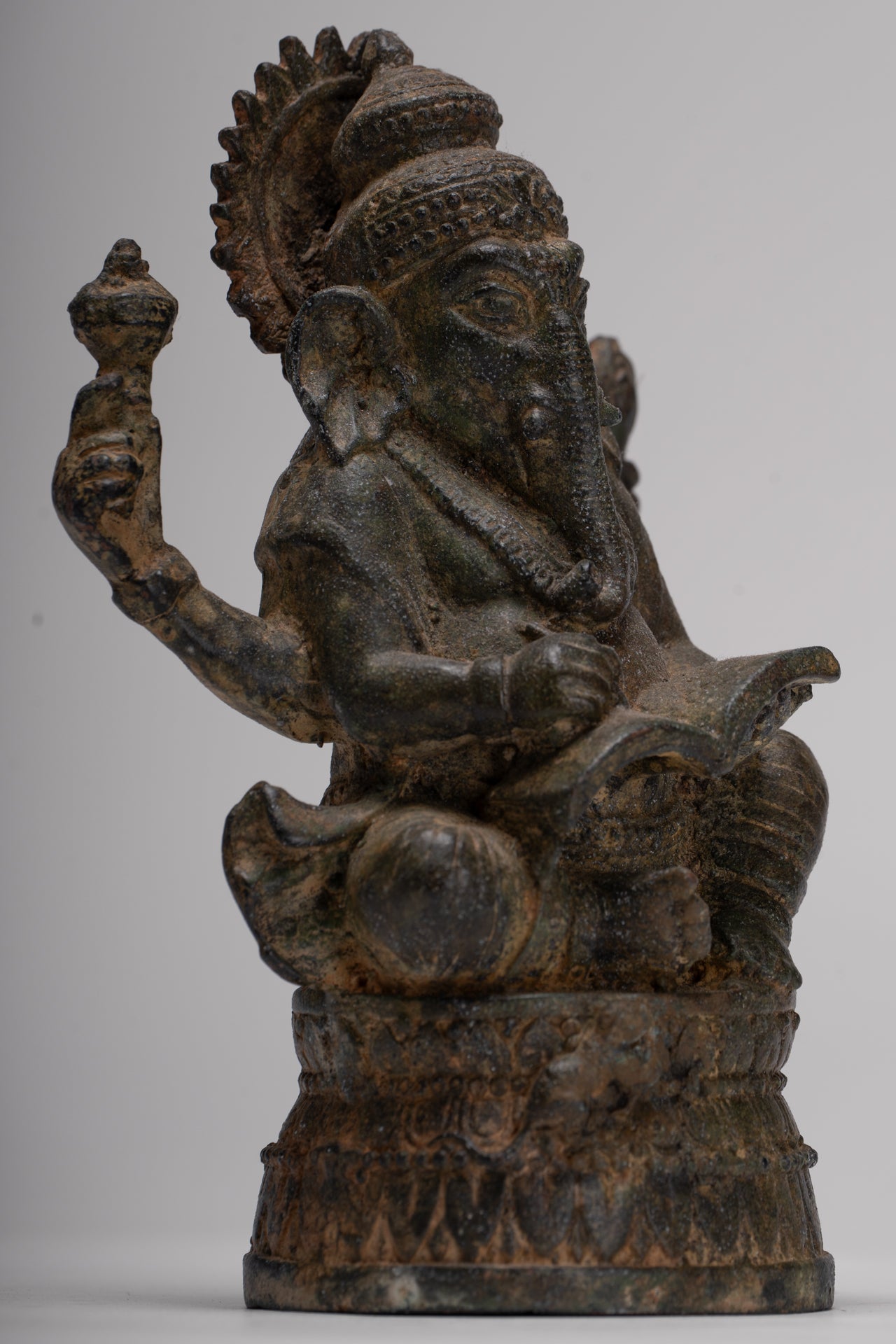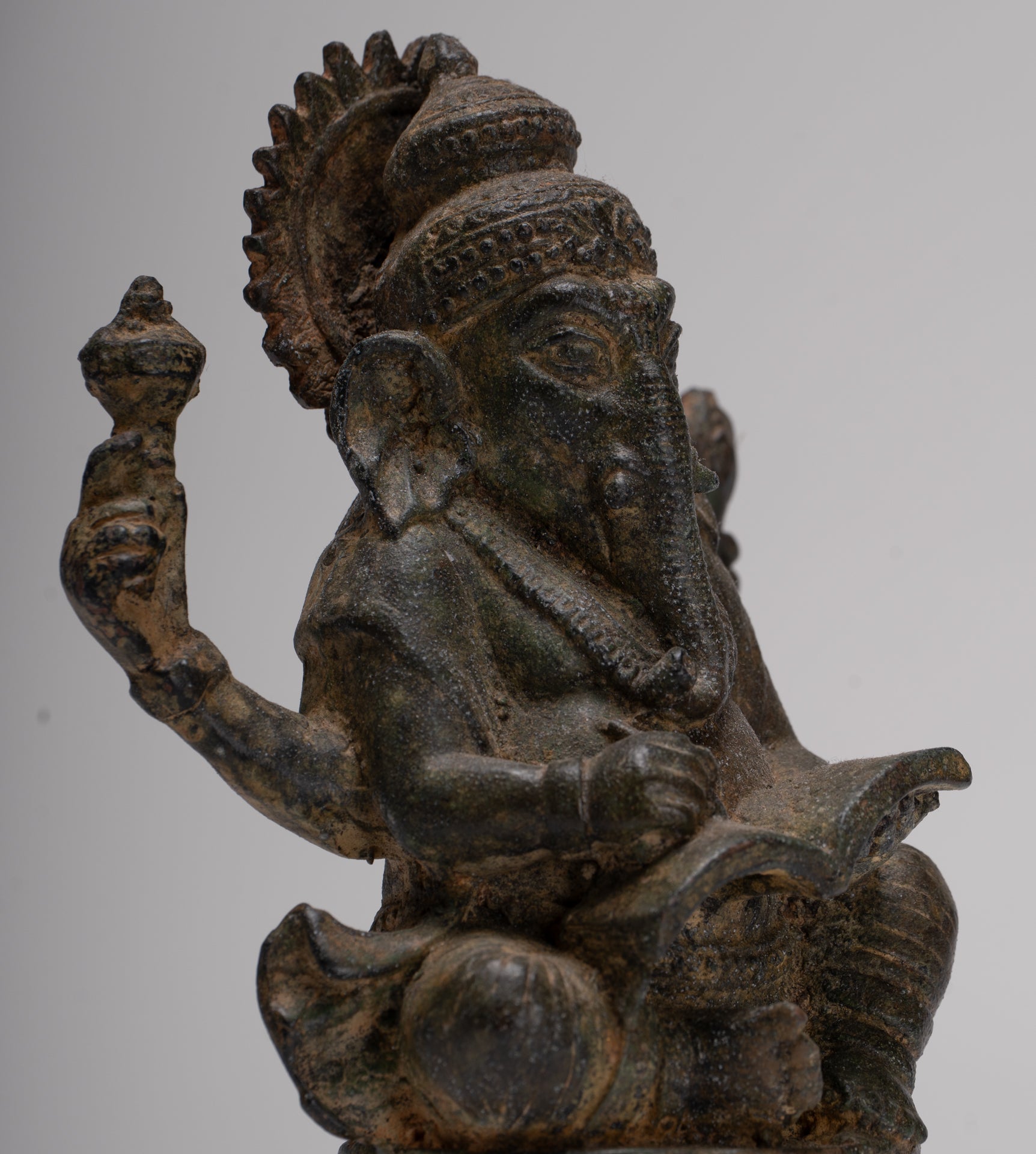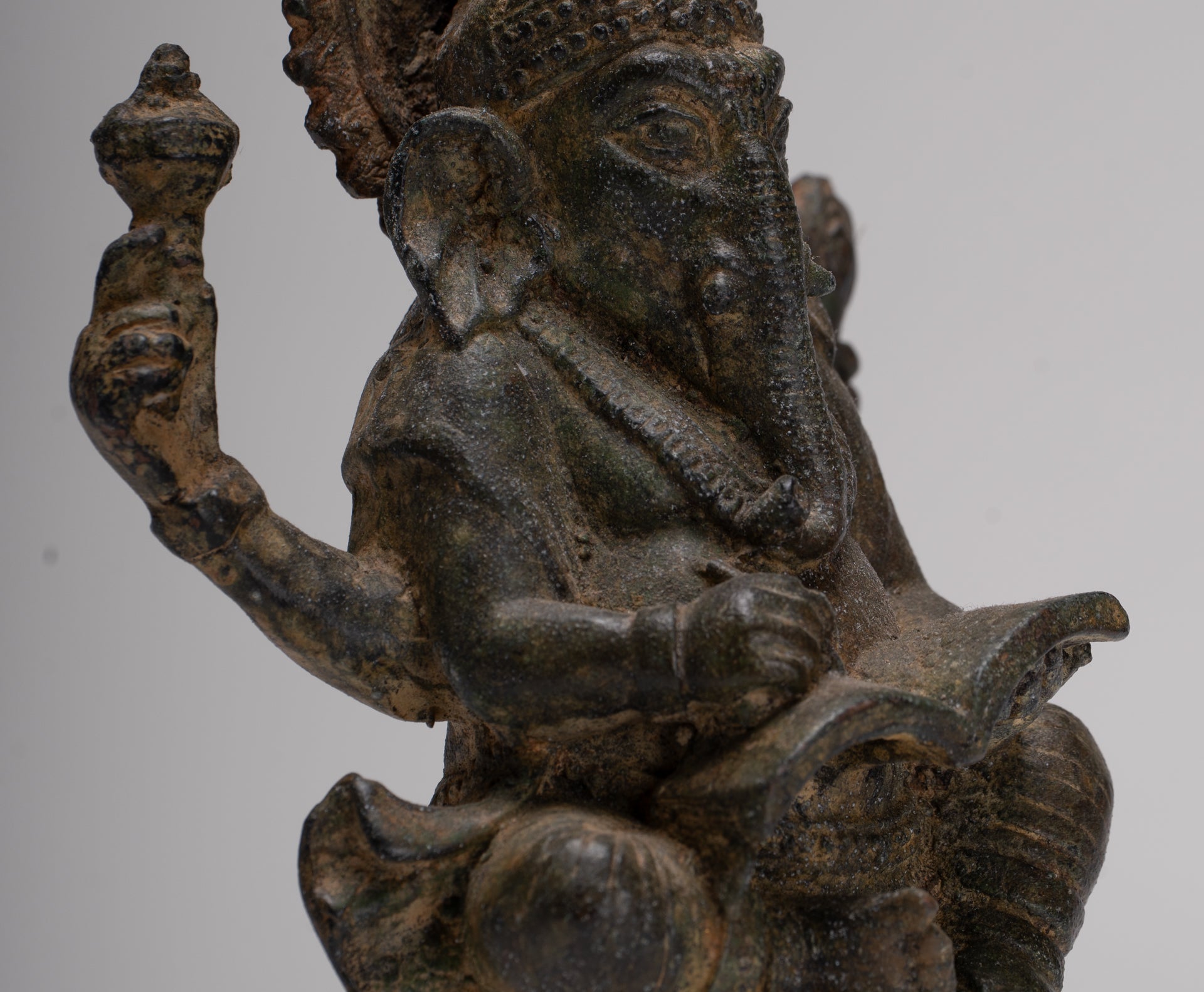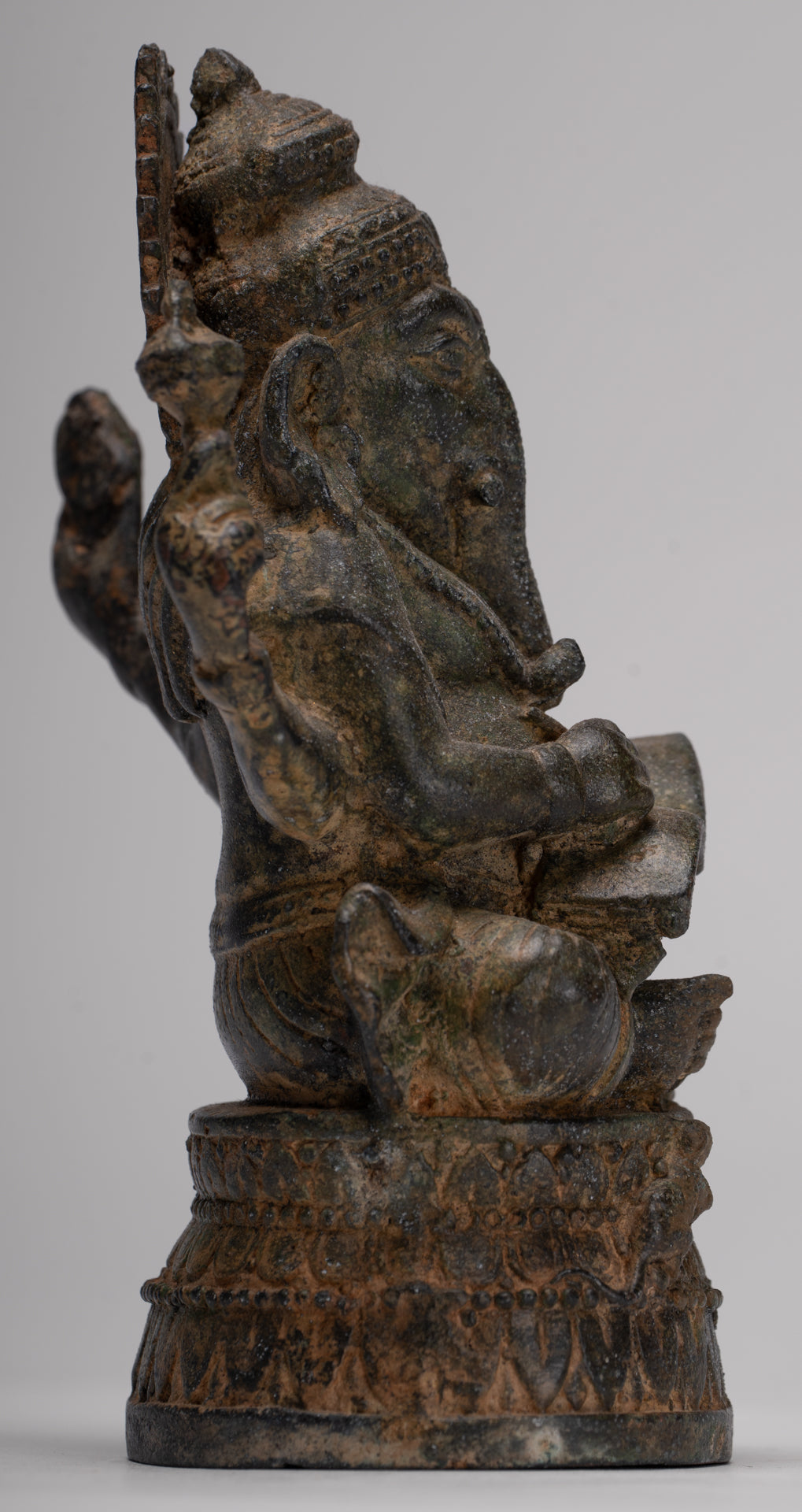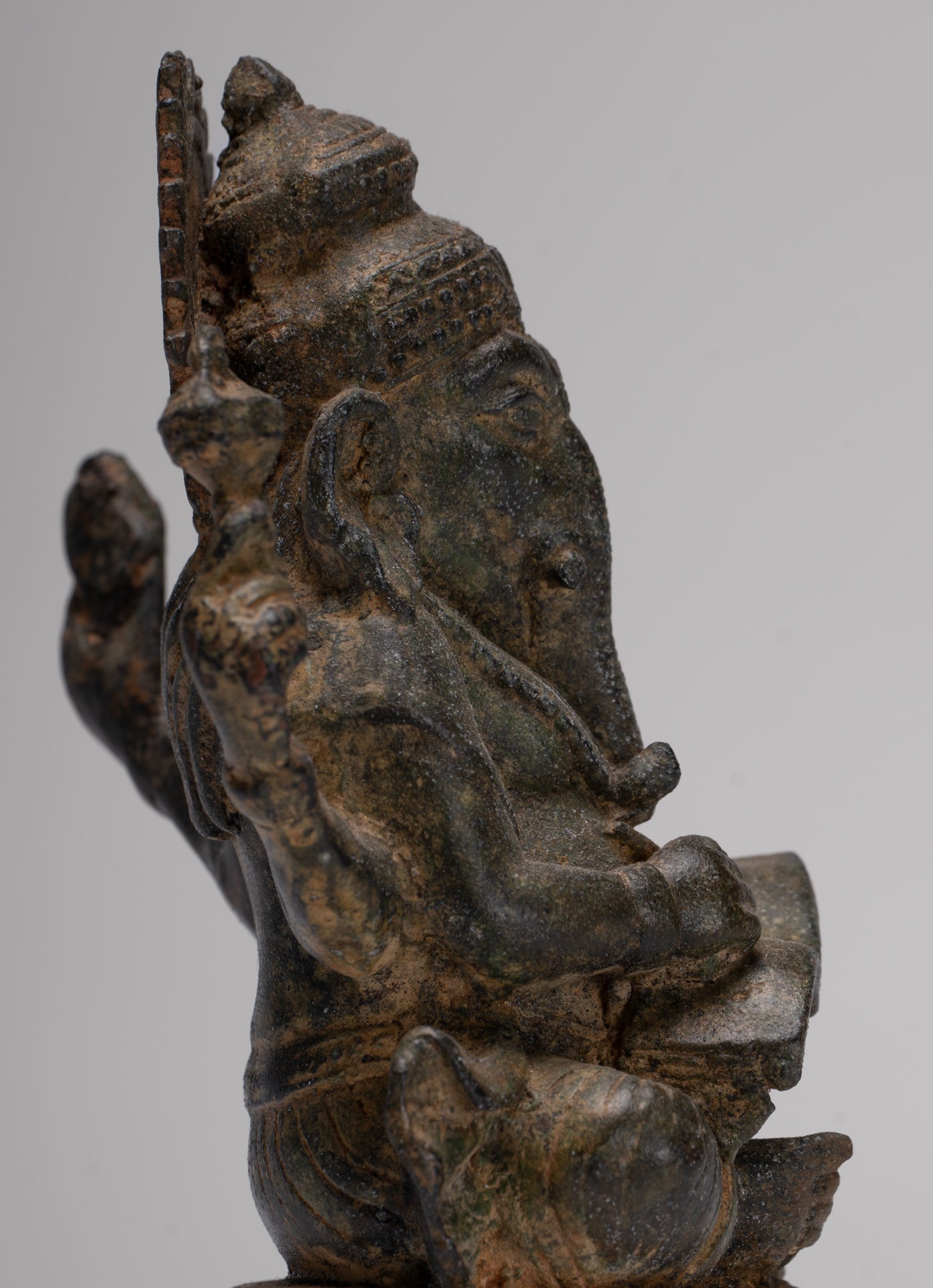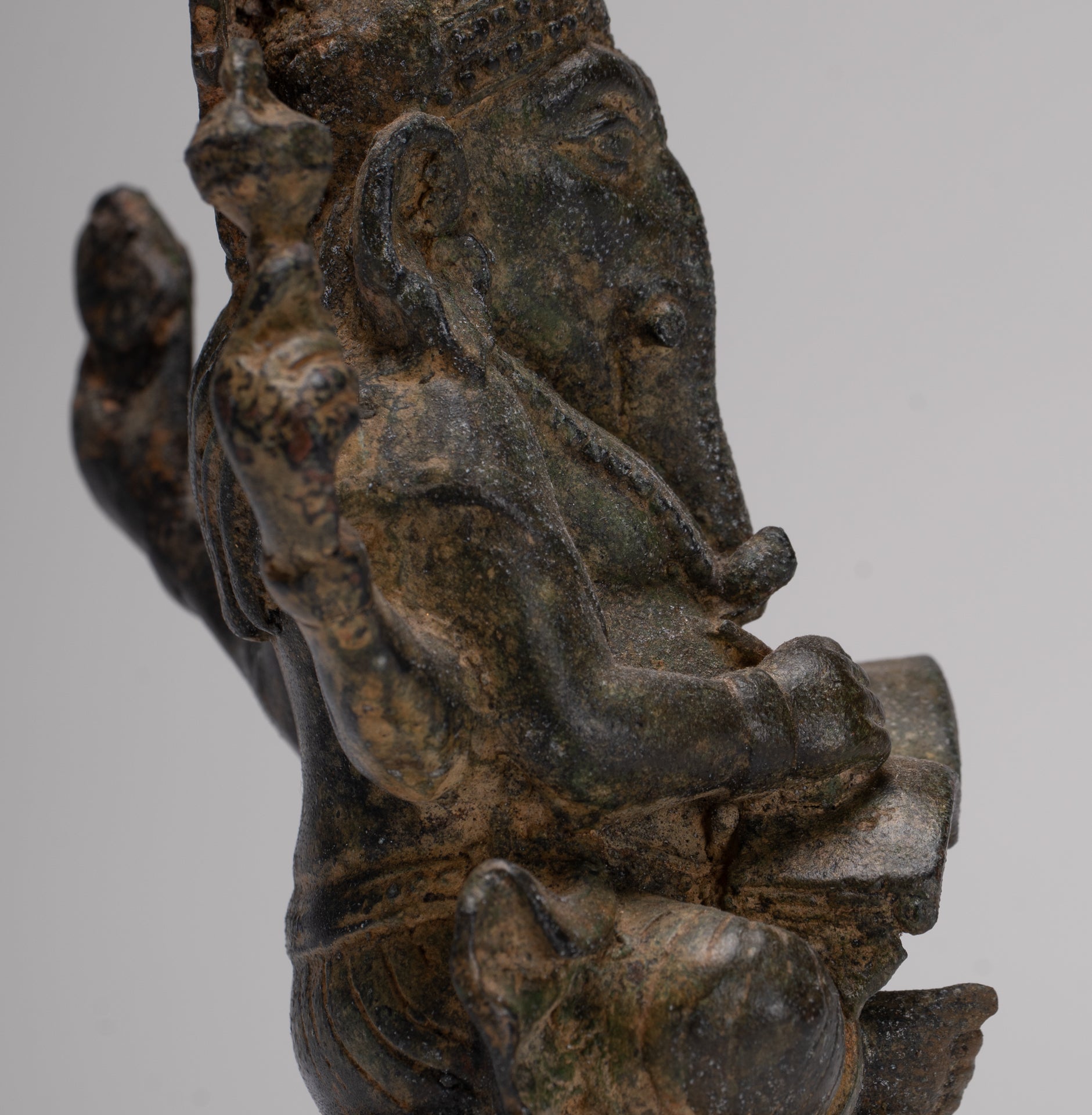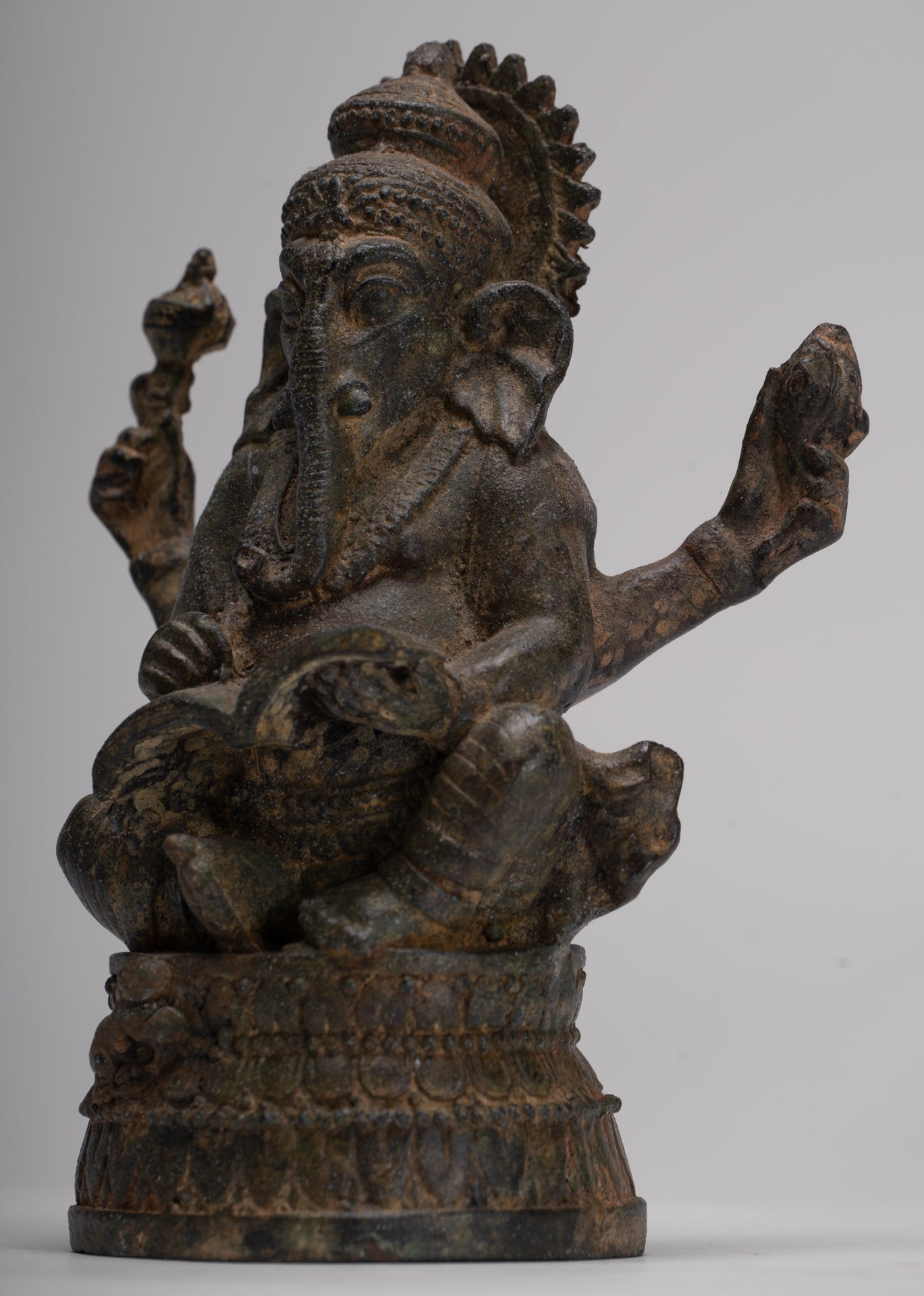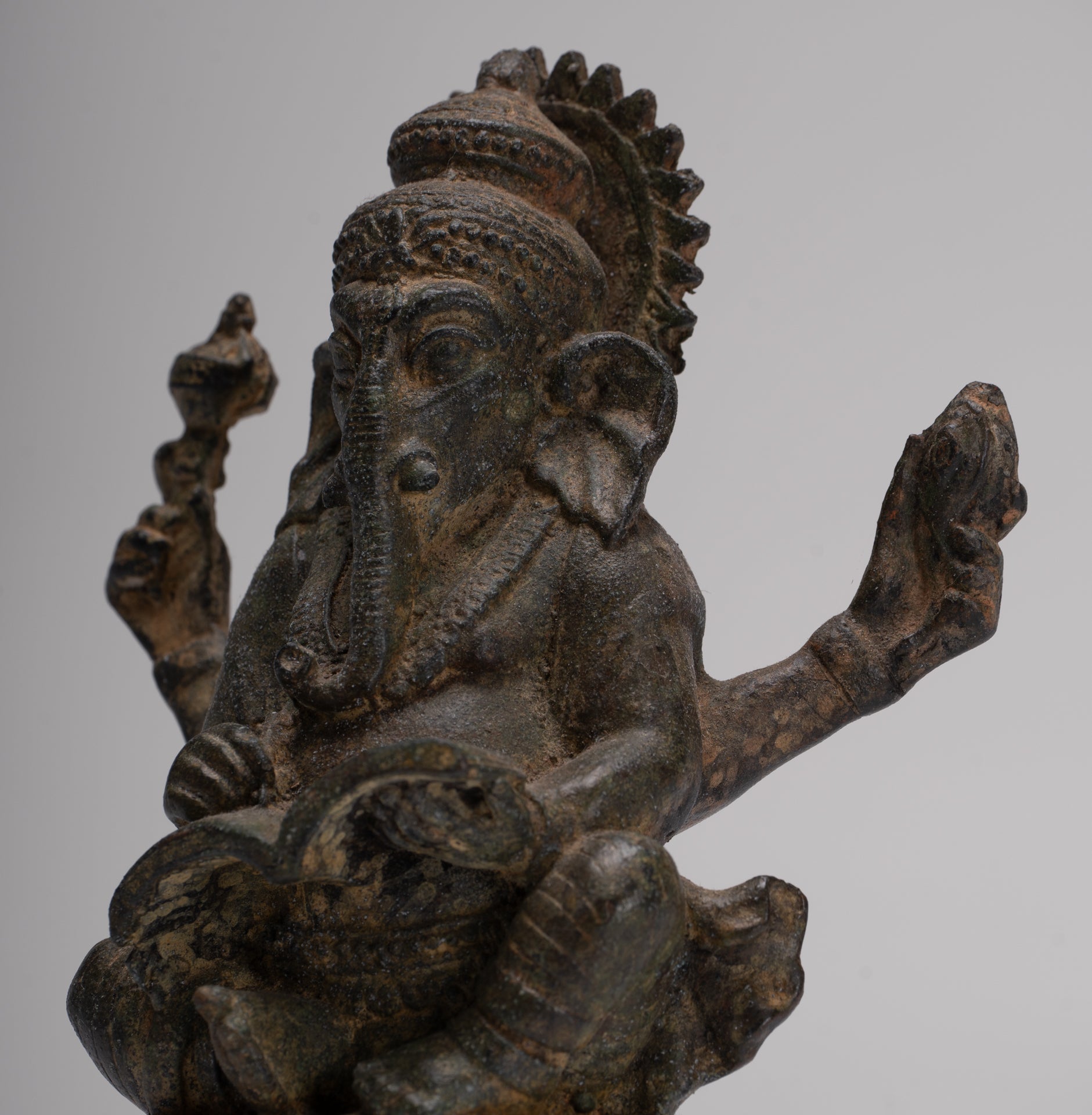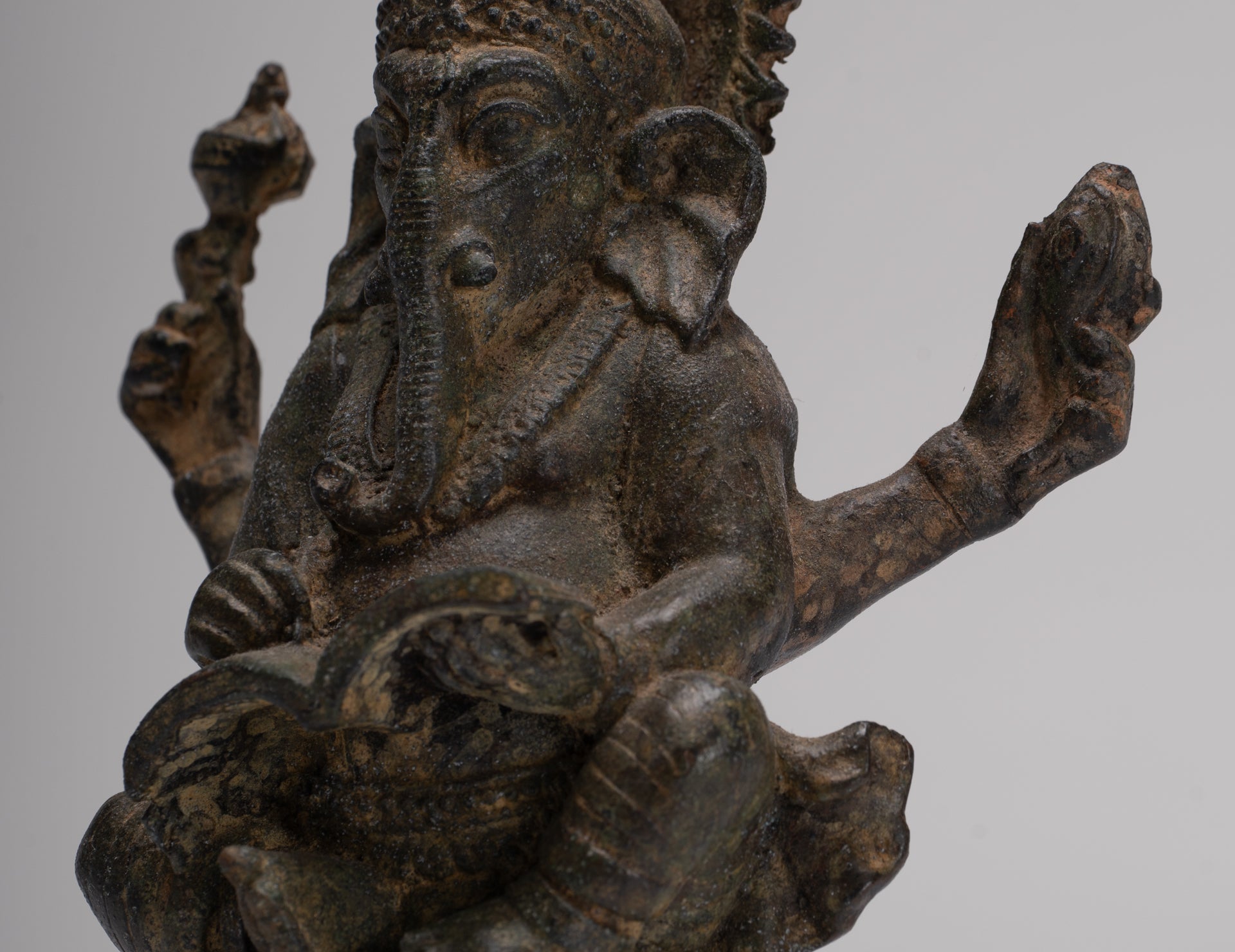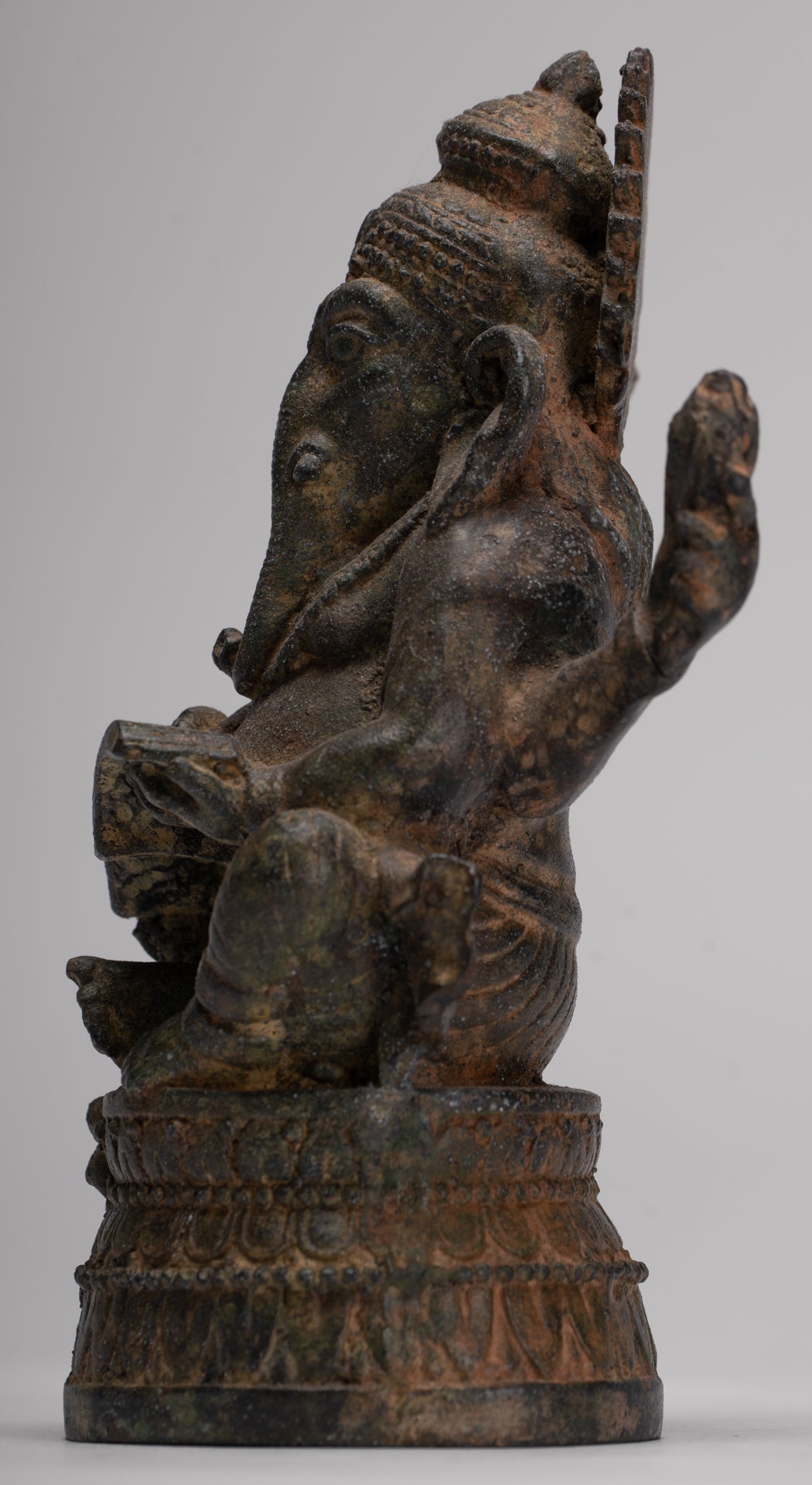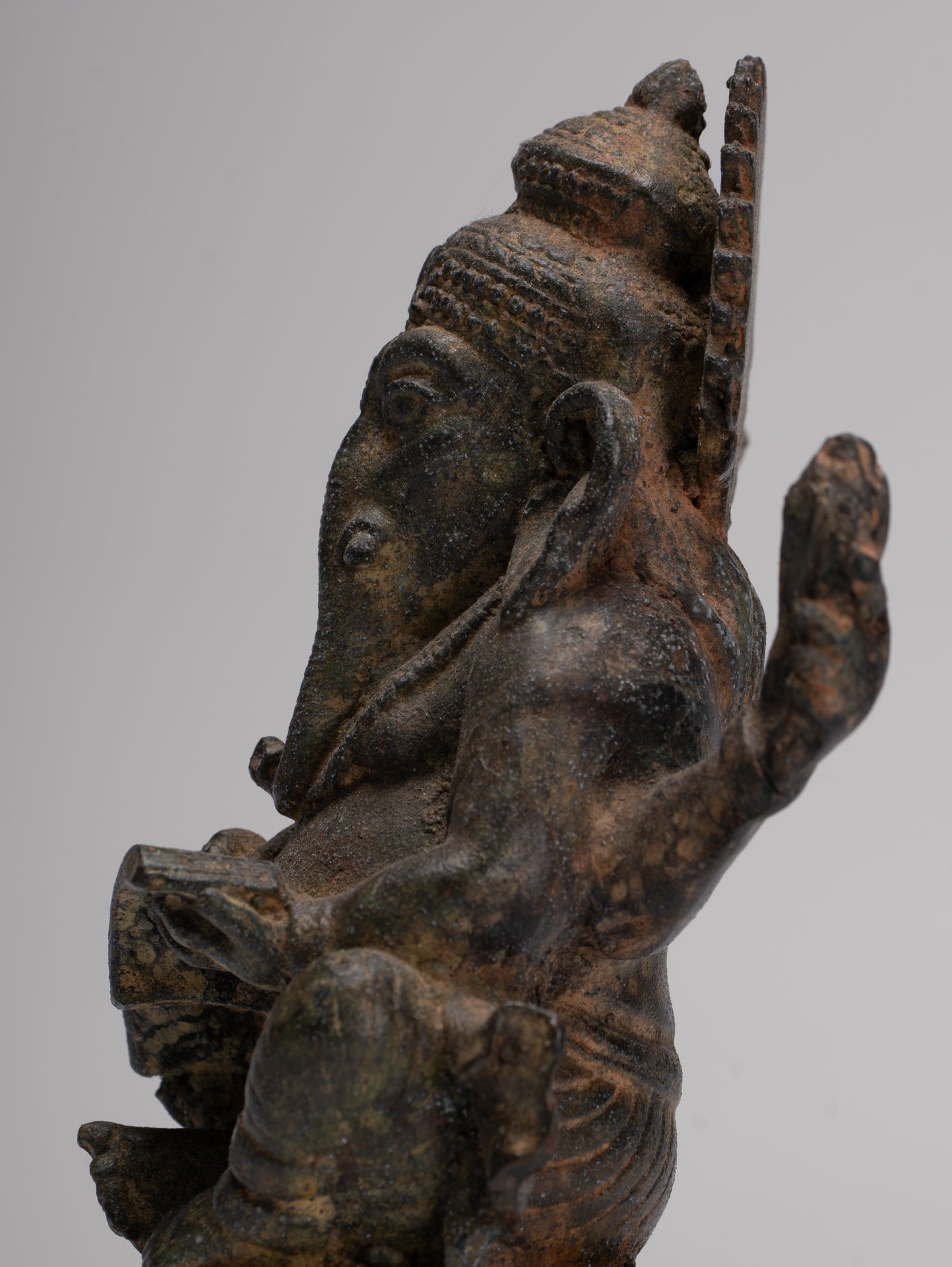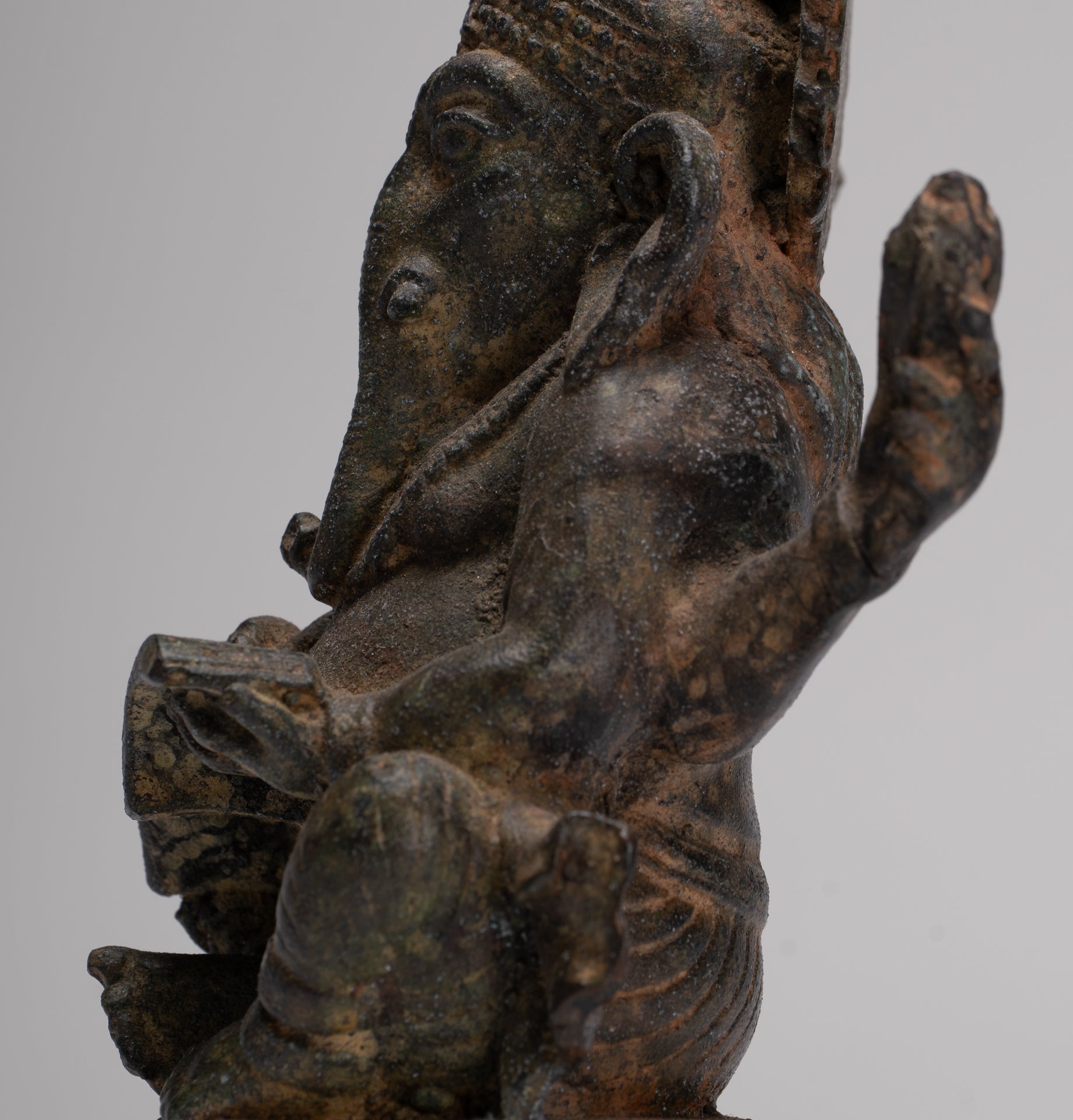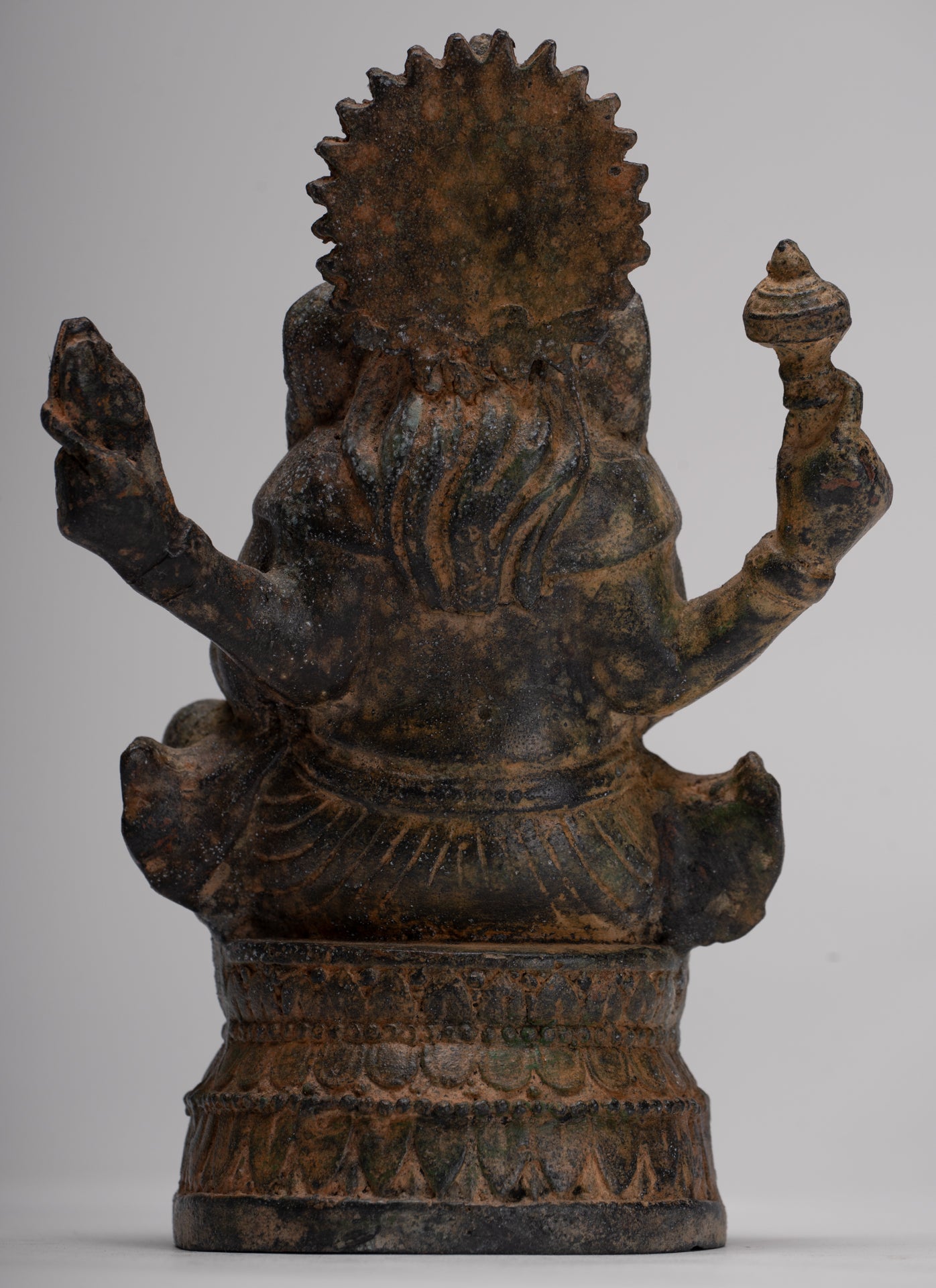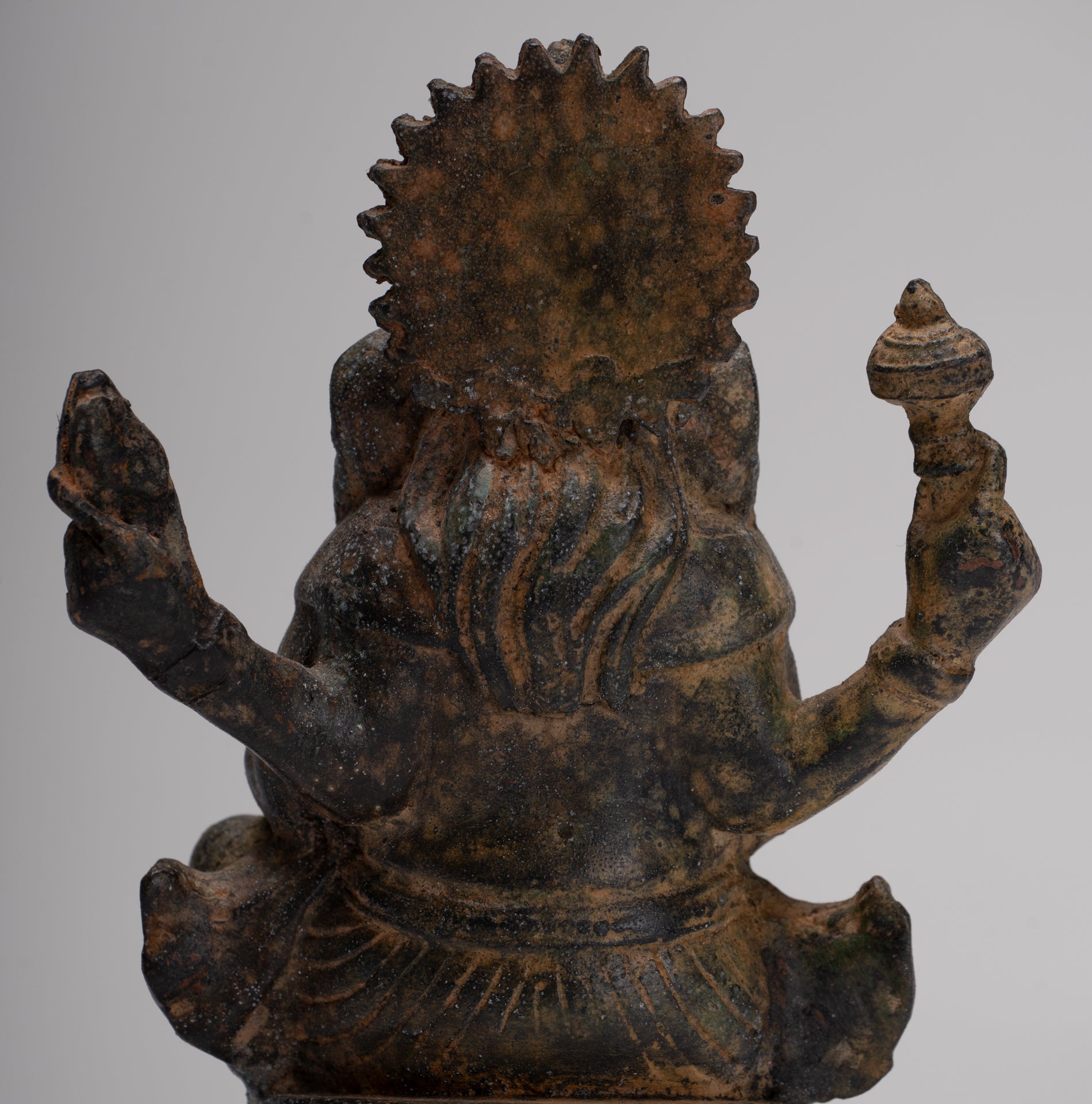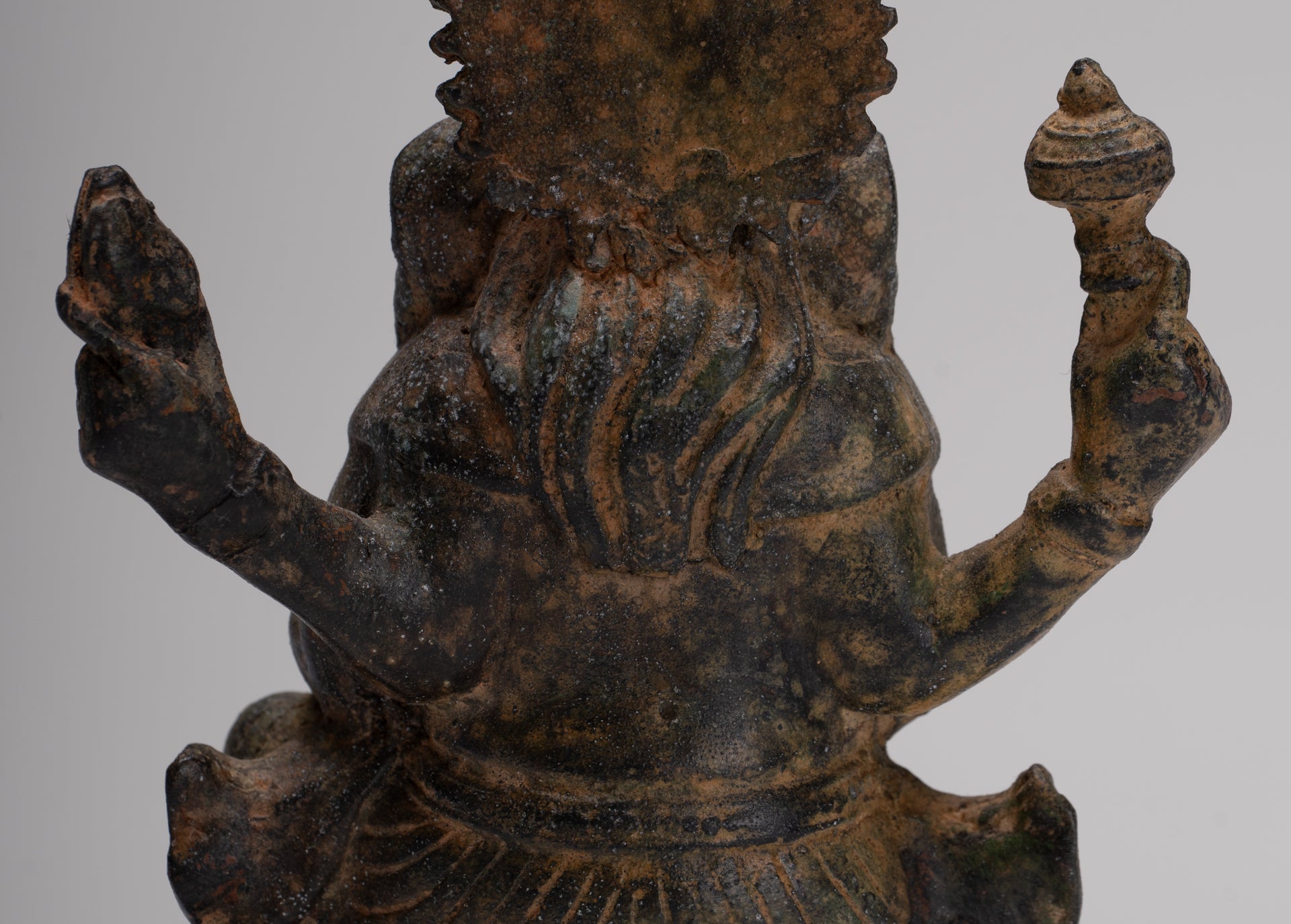-
Ganesha Statue - Antique Thai Style Seated Bronze Ganesh Statue - 16cm/6"
Measures (Height) 16cm/6"
An antique Thai style seated Ganesha reading a book.
Here Ganesha sits read a book seated on a lotus leaf pedestal. The lotus flower represents purity, compassion and the giving of great joy to all.
Ganesha holding a book or sutra encapsulates the deity's role as the embodiment of wisdom and the guide on the spiritual journey. The sacred teachings within the pages symbolize the divine knowledge that leads seekers toward self-realization and a purposeful life.
In the intricate symbolism of Ganesha, the book becomes a profound emblem, inviting devotees to delve into the treasure trove of wisdom and embark on a transformative journey toward higher consciousness and divine understanding.
Revered as the patron of intellect and learning, Ganesha embodies the essence of wisdom and knowledge. His association with a sacred book or sutra underscores his role as the bestower of divine insight.
The book or sutra in Ganesha's hands serves as a guide on the path to self-realization. It represents the spiritual teachings that lead individuals toward understanding the true nature of the self and attaining a state of profound wisdom and enlightenment.
The direction of Ganesha's trunk has symbolic meaning. Here the trunk turns to Ganesha's right. This represents Moksha or enlightenment. The perfect direction for those seeking or following a spiritual path.
Ganesh is widely revered as the Remover of Obstacles and more generally as Lord of Beginnings and Lord of Obstacles, patron of arts and sciences and the deity of intellect and wisdom.
This traditional in appearance piece is sure to add a unique touch to any room of your home or workplace.
One of the most recognizable of the Asian deities this representation of Ganesha is sure to enlighten your home with endlessly timeless style.
-
The majority of orders will be shipped with DHL. This is a secure, express and fully tracked service.
Items less than 2Kg we typically ship using Royal Mail.
Once we receive your order we try to ship all orders the same or next working day.
Large and/or fragile pieces requiring palletising, specialist crating and/or extra packaging may take a little longer. Palletised shipments will be delivered curbside.
All orders over 35 GBP will be shipped free of charge.

-
We genuinely hope that all purchases delight.
However, if they do not, regardless of reason, we will refund all orders upon receipt of the unwanted item. Just notify us within 14 days of receiving your order that you wish to make a return and send the piece back to us with 30 days of delivery.
Ganesh statues for sale offer a powerful blend of spiritual symbolism, artisan craftsmanship, and timeless décor appeal for homes, offices, and sacred spaces.
Choosing the right piece means understanding both the meaning behind Ganesha and the practical considerations of materials, size, and placement.
This guide focuses on how to select the ideal Ganesh statue for sale.


